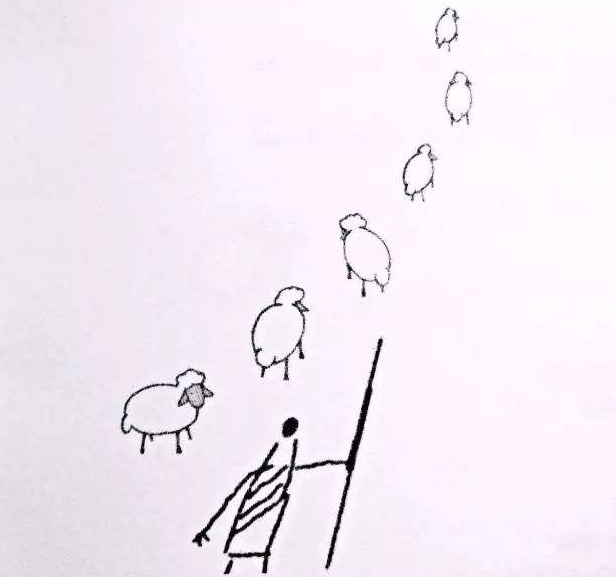He took his money from his pouch and showed it to the young man.
男孩從兜里掏出錢(qián),給那少年看。
The owner of the bar came over and looked, as well.
酒吧老板也湊上前來(lái)。
The two men exchanged some words in Arabic, and the bar owner seemed irritated.
他們倆用阿拉伯語(yǔ)交談了幾句,酒吧老板似乎生氣了。
"Let's get out of here," said the new arrival. "He wants us to leave."
“咱們走。”少年說(shuō),“他不愿意讓我們待在這里。”
The boy was relieved. He got up to pay the bill, but the owner grabbed him and began to speak to him in an angry stream of words.
男孩松了口氣,起身去付賬,但是酒吧老板攔住他,開(kāi)始不停地說(shuō)著什么。
The boy was strong, and wanted to retaliate, but he was in a foreign country.
身強(qiáng)力壯的圣地亞哥想回?fù)簦欢丝淌窃趧e國(guó)土地上。
His new friend pushed the owner aside, and pulled the boy outside with him.
他的新朋友將酒吧老板推開(kāi),拉著他跑到外邊。
"He wanted your money," he said. "Tangier is not like the rest of Africa. This is a port, and every port has its thieves."
“他想要你的錢(qián)。”少年說(shuō),“丹吉爾和非洲其他地方不一樣,這是個(gè)港口,港口總是有很多賊。”
The boy trusted his new friend. He had helped him out in a dangerous situation.
男孩相信他的新朋友,因?yàn)樯倌暝陉P(guān)鍵時(shí)刻幫了自己。
He took out his money and counted it.
男孩從兜里掏出錢(qián)來(lái)數(shù)了數(shù)。
"We could get to the Pyramids by tomorrow," said the other, taking the money. "But I have to buy two camels."
“明天我們就能到達(dá)金字塔。”那少年邊把錢(qián)抓到自己手里,邊說(shuō)道,“不過(guò),我們需要買(mǎi)兩頭駱駝。”

They walked together through the narrow streets of Tangier. Everywhere there were stalls with items for sale.
他們?cè)诘ぜ獱柂M窄的街巷里走著,每個(gè)街角都有賣(mài)東西的棚子。
They reached the center of a large plaza where the market was held. There were thousands of people there, arguing, selling, and buying;
最后,他們來(lái)到一個(gè)很大的廣場(chǎng)。廣場(chǎng)此時(shí)成了集市,數(shù)千人在那里討價(jià)還價(jià),買(mǎi)進(jìn)賣(mài)出。
vegetables for sale amongst daggers, and carpets displayed alongside tobacco.
賣(mài)蔬菜的中間夾雜著賣(mài)短劍的,賣(mài)地毯的旁邊就是賣(mài)各種各樣煙袋的。
But the boy never took his eye off his new friend. After all, he had all his money.
但是,男孩的目光一直緊盯著他的新朋友,不管怎么說(shuō),男孩所有的錢(qián)都在他手上呢。
He thought about asking him to give it back, but decided that would be unfriendly.
他本想把錢(qián)要回來(lái),但又覺(jué)得那樣做不太禮貌。
He knew nothing about the customs of the strange land he was in.
他并不了解這塊陌生土地的風(fēng)土人情。
"I'll just watch him," he said to himself. He knew he was stronger than his friend.
盯住他就行,圣地亞哥暗自思忖,反正自己比他強(qiáng)壯。
Suddenly, there in the midst of all that confusion, he saw the most beautiful sword he had ever seen.
在紛繁雜亂的商品中間,他突然看到一把劍,那是他見(jiàn)過(guò)的最漂亮的劍。
The scabbard was embossed in silver, and the handle was black and encrusted with precious stones.
包銀的劍鞘,黑色的劍柄,柄上嵌有寶石。
The boy promised himself that, when he returned from Egypt, he would buy that sword.
男孩暗暗發(fā)誓,從埃及回來(lái)的時(shí)候,一定要買(mǎi)下這把寶劍。
"Ask the owner of that stall how much the sword costs," he said to his friend.
“請(qǐng)你問(wèn)一下攤主,這把劍多少錢(qián)。”圣地亞哥對(duì)他的朋友說(shuō)。
Then he realized that he had been distracted for a few moments, looking at the sword.
有那么兩秒鐘,他只顧盯著看那把劍了。
His heart squeezed, as if his chest had suddenly compressed it.
沒(méi)聽(tīng)到回答,男孩的心一下揪緊了,胸口仿佛壓了一塊巨石。
He was afraid to look around, because he knew what he would find.
他不敢扭頭,因?yàn)樗缹?huì)看到什么。
He continued to look at the beautiful sword for a bit longer, until he summoned the courage to turn around.
他的視線繼續(xù)在那把漂亮的寶劍上停留了片刻,最后,終于鼓足勇氣,轉(zhuǎn)過(guò)身。
All around him was the market, with people coming and going, shouting and buying, and the aroma of strange foods ...
他的周?chē)猩系娜宋鮼?lái)攘往,高聲喧嘩,異國(guó)的菜肴散發(fā)著香味……
but nowhere could he find his new companion.
他那位伙伴的面孔消失無(wú)蹤。


